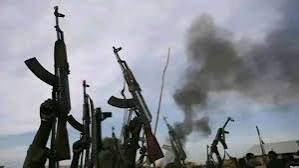
Communal violence in the Tonj and Mayom areas of South Sudan has surged in recent days, defying the government’s recently declared state of emergency aimed at restoring order and protecting civilians.
In Tonj County, renewed clashes between rival communities have resulted in multiple deaths and dozens of injuries. Reports indicate that entire villages were burned, and hundreds of families have fled their homes amid fears of escalating attacks. Local leaders report a breakdown in dialogue efforts, with armed youths continuing retaliatory raids that target both cattle herds and civilian dwellings.
Meanwhile, in Mayom County, armed bandit groups have intensified looting and livestock rustling, driving families from their homes and overwhelming local aid networks. The state of emergency, declared just one week ago, has prompted increased military and police presence, but security forces have yet to effectively stem the violence.
Residents express frustration over slow and insufficient response. “They came after the attack, not before,” said one displaced farmer who witnessed livestock stolen and his home set ablaze. Humanitarian relief efforts remain hampered by insecurity, with many communities falling through the cracks due to ongoing hostilities and restrictions on movement.
The government has blamed the renewed violence on unresolved land disputes and cattle-raiding traditions, which authorities say require stricter enforcement and tribal reconciliation. Yet critics argue that the state of emergency has only amplified tensions, with security forces accused of arresting civilians in mass and failing to disarm militias.
Regional peace monitors and international donors have urged swift reforms: they call for the deployment of neutral protection forces, immediate humanitarian access, and a renewed push for conflict mediation that includes traditional community elders.
As Tonj and Mayom teeter on the brink of humanitarian disaster, an urgent reassessment of the emergency response is being demanded to prevent further loss of life. With rainy season approaching and harvest preparations underway, observers warn that without decisive action, the violence could deepen food insecurity and destabilize the wider Unity and Warrap regions.

